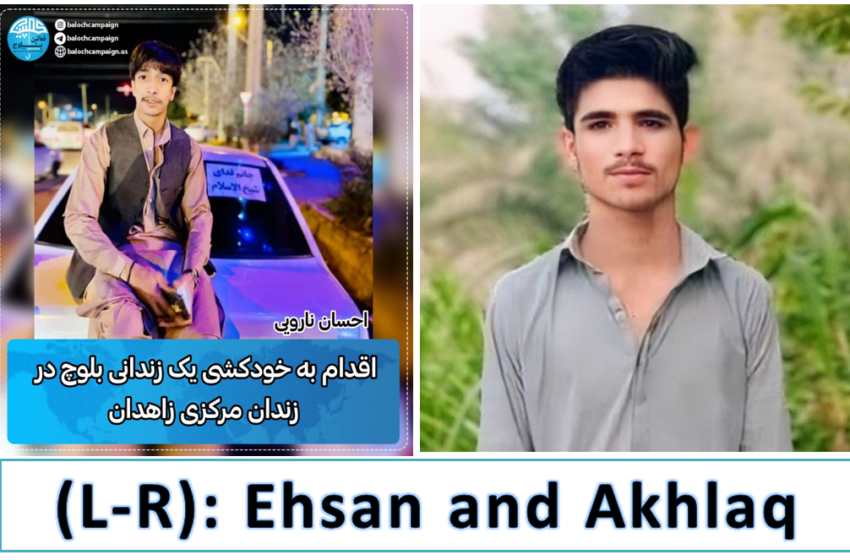Indian State Should Focus on Unconventional Methods: Jamal Nasir Baloch
Iran and Pakistan’s Brutal Acts Lead to Baloch Prisoner’s Suicide

A 22-year-old Baloch prisoner attempted suicide in Zahedan Central Prison in Iranian-occupied Balochistan, while another youth took his own life after being abducted twice by Pakistani forces.
Ehsan Narowi, 22, son of Muhammad Azim from Khayaban Fazli Zahedan, was held in Block 1 of Zahedan Central Prison. He tragically attempted to end his life by slashing his wrists and neck with a blade and scissors.
Prison officials rushed Ehsan to Imam Ali Hospital, where he remains in the Mardan Surgical Department. His family learned about his suicide attempt from a fellow inmate.
Sources from the Baloch Activists Campaign (BAC), who requested anonymity for safety reasons, revealed that businessman Waheed Akbari pressured Ehsan’s father to transfer his land under threat of Ehsan’s arrest.
Ehsan was first arrested at 18 by Akbari’s brother-in-law, an intelligence officer in Zahedan.
After a brief release on bail, Ehsan was re-arrested and sentenced to three years in prison despite pleading not guilty and receiving inadequate defence in court.
Ehsan, who worked as a bus conductor to support his ill father and family, faced financial hardship after his family’s land was confiscated. Over the past four months, his mother struggled to pay rent due to their dire economic situation.
In another tragic incident, Akhlaq Baloch, an orphan, took his own life in Mullai area, Turbat, Balochistan. He had been abducted and disappeared twice by Pakistani forces, enduring continuous psychological pressure.
These incidents highlight a troubling pattern where Baloch youth, both male and female, resort to suicide due to blackmail and pressure tactics by Pakistani and Iranian state forces.
Reports suggest Iranian forces have subjected young male prisoners to rape and silenced their families, tactics also observed in Pakistani custody and prisons.
Baloch activist Sebghat Abdul Haq Baloch refuses to label Akhlaq’s death a suicide, instead calling it state-sponsored murder.
He said there have been numerous similar cases where state institutions subjected individuals to repeated abduction and mental torture, driving them to suicide.
Sebghat urged Baloch activists to support survivors of state oppression, advocating resistance and exposure of the harassment faced, aiming to mentally weaken and paralyze the oppressors instead of committing suicide.









